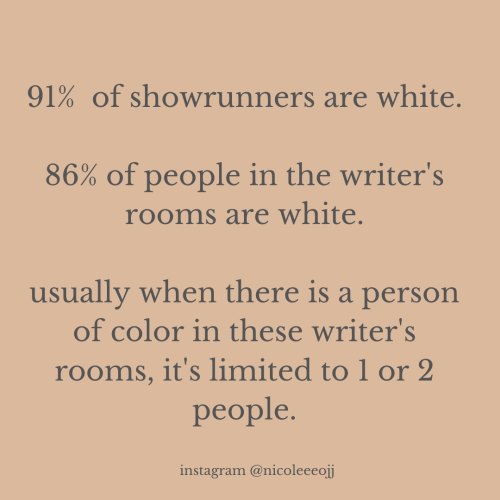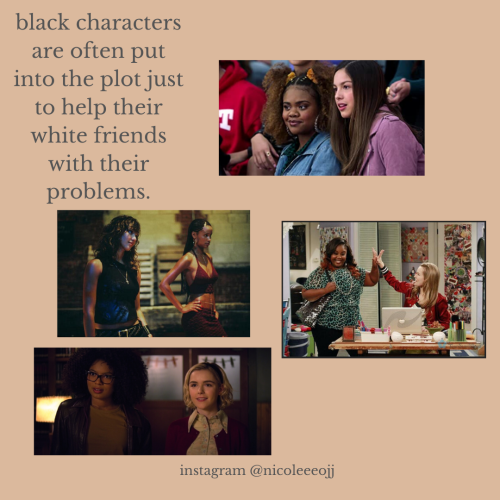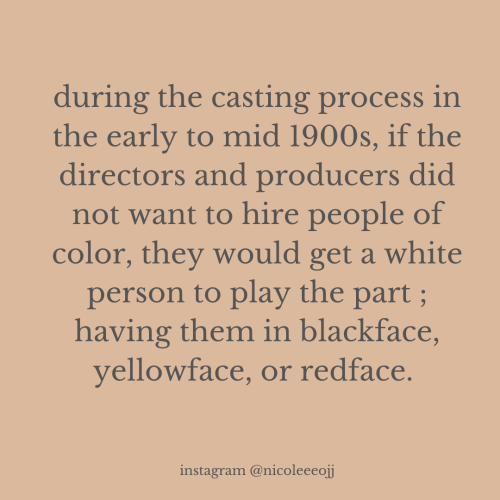How To Study Smarter:
How to study smarter:
So my (very cool) teacher was talking about this in class the other day, made me want to make a post about it.

The image above is adapted from the National Training Lab in Bethel, Maine. It basically shows how much information the average student retains when using certain methods.
Attending a lecture is only 5% and reading the material is only 10%.
Which could be a potential answer imo to why many people spend hours reading stuff and not retain most of it or not do well on tests.
Anything audiovisual increases the percentage of information you’ll likely retain up to 20%, having it demonstrated in front of you gives you 30%. Discussion (which can be done very easily) can make you retain up to 50%, practicing with your own hands means you’ll retain 75% and finally when you teach others you’ll retain a massive 90%.
So how can you implement this into your study routine to retain the most information?
Audiovisual: I think this is very easy, YouTube channels like Khan Academy cover almost everything, so go online, find some videos relevant to whatever you’re studying and watch them.
Demonstration: This is pretty much your teacher’s job, an example here would be anything related to social or hand skills, in my case interviewing and examining patients. At my school before we interview any patient or examine them my teacher does it first and we carefully observe. So whenever someone is demonstrating something pay full attention. And then if possible practice it (possibly with your friends as a role play) because that’ll increase the percentage of information you retained to 75%
Discussion: This is very basic and can be done simply by just reading the material before, preparing questions and engaging in brief discussions with your teacher throughout the lecture. Or if pre reading isn’t your thing just join a study group and discuss everything you’re learning over there.
I’ve already talked about practice briefly with demonstration, it’s pretty self explanatory (especially for OSCEs, for all you medstudents)
Teaching others: You can volunteer to tutor anyone or just take the lead in your study group. All of my teachers swear by this method. Some even suggest explaining to yourself if you can’t find anyone else but I have never tried it. (or force your family/boyfriend or SO to listen, that’s what I do)
Get creative and make the most of your study sessions, if anyone tries any of these please let me know!!
More Posts from Alittleanxiousbadger and Others








some of my fav retro computers!!! i would love to doodle some more later on!! it was really hard to choose only six ahaha (click for captions!)
Things that have helped me (coding related)
jsfiddle - Helps you test out your code instead of using tumbr’s shitty customization page
cssportal - offers a variety of services,including: testing out your css code (gives you a live demo), generators (box-shadow etc) and others
dirtymarkup - Cleans up your code. Basically makes it legible
patternify - creates small patterns (it’s what I use to create my icons). This is honestly my favorite tool.
w3schools, codeacademy, learn-shayhowe, learnlayout - all of these websites help you learn the fundamentals of html/css and more
google - it is literally your best friend. It’ll answer any question you have no matter how vague
stackoverflow- very helpful website. Helps you answer any questions you may have (code related). BUT PLEASE, MAKE SURE YOU HAVE SEARCHED YOUR QUESTIONS BEFORE ASKING. These are actual people who are taking their time to answer your questions, and they will take your “question asking” privilege away from you if you abuse it
tutorialzine codrops- tutorials to help you with coding. It can go from very simple, to “that’s way too much time investment for me”
css-tricks - it’s like a combination of helping you code, to asking questions, to tutorials (this is my favorite website)
behance, dribbble, awwwards - great place to find inspiration
validator - checks the validity of your code
iconfinder - holy grail of icons. Some are free some aren’t
fount - it can identify any font that a webpage is using
colourcode - just check it out.
colorlovers- color palette galore
caniuse- says in the name
Now if you’re trying to see how your code/theme etc looks on different screen resolutions this is how you do.
Google chrome
right click on page then click on inspect or (Ctrl + Shift + I) look for this (it’s the two ipad looking icons)

All you have to do now is input in whatever specs you want If you don’t want it anymore, just click it again and it’s gone.
Firefox
click on the menu icon (the 3 lines in the right hand corner)
click developer then responsive design view or (Ctrl + Shift + M)
I hope you found this helpful. Enjoy your day
a list of untradtional study tips
buy new/pretty stationery; i love buying new pens and notebooks so much that i’ll easily get through re-writing notes i had been putting off
create a few study playlists; since instrumental/classical music helps improve brain functioning, have a selection of ones you like, but also add in the odd soft lyrical song. take a break every time a song with lyrics comes on and work during the instrumentals. it should be in a 5:1 ratio (instrumental:lyrical) that way you will work for 20-30 minutes with a 5 min break
make your study space smell good; light a candle, or a smell that you enjoy, try to use the same scent every time to trigger memory recollection. mint and vanilla are my favs!
write down how much time you spend studying for a test and then the grade you got; then you can figure out how time you really need to spend to get a good grade. this will help you use your time more effectively
read over your notes before you sleep; this allows for neuron to be killed and myelin pathways to be made! which means learning and understanding, yay!
get done up; you don’t always need to study in comfy clothes, putting on makeup and a nice outfit can put you into a ‘let’s get shit done’ mood
make you notes pretty; it’s more visually interesting to study and can me more fun to write and make, which helps you learn while you write them!
i really hope this can help some of you and that you enjoy these tips! don’t be afraid to ask me any questions!










since my writing post was received pretty well, i though i’d make other, to give some insight on the racism in the film industry and why it’s still a big problem now as it was in the past.
Eradicate “Smart Kid” Norms
The goal of this post is to raise awareness to damaging behaviour towards a group otherwise ignored due to their academic prowess and supposedly problem-free lives, but not to hurt or offend other people. Fine if you agree that school isn’t important, but this is purely an education-based opinion.
PSA: SMART KIDS …
- hate being compared to
if you are the top of your class, every test is a problem. people will turn around when they get a result and try to see yours in order to evaluate themselves instead of take the grade they’ve been awarded. for example, instead of accepting you got a B, you see that the “smart kid” got a C and instantly feel better about yourself, or vice versa if they got more than you. this kind of behaviour is not only damaging to who you’re comparing to (since people often express their negative views on their grades towards you, commonly getting the “of course you would get an A” or “I can’t believe I got more than you!”) but also to yourself - of course in school you’re taught to compare yourself, but your biggest competitor is yourself and you should always be aiming to outdo your best attempt rather than what the “swot” gets.
- need to be supported regardless of their grades
a particularly sad experience I personally have is collecting my exam results last year. I went in with all my friends, they got their envelopes, jumped up and down in joy at what they got … it came to my turn, I saw what I got, I turned around to tell them - and they told me not to say a thing. they didn’t want to know! to an extent, I get this (see previous point about comparative self-worth) but when you achieve something, you wanted to be recognised and appreciated, especially by your friends. telling your smart friend not to share what they got on a paper is purely bad friendship - everyone’s successes, no matter how small or frequent, deserve to be celebrated.
- aren’t always bragging
this is a problem I’m facing even now. they rarely talk about their achievements or grades in fear of being disliked or viewed as competition. if somebody gets an A on a mock, they feel like they can barely say a thing because they don’t want to come off as lacking modesty or over-confident. how do you say things about how well you’re doing without offending, belitting or annoying other people?
- shouldn’t carry your group projects
all I’m going to say on this one is that if you let the “smart kid” do all the work in school, you’re wasting your own time. if you have to be in lesson for fifty minutes anyway, you might as well learn, rather than waste another fifty minutes elsewhere revising for your exam!
- don’t always revise
some people revise. others don’t. be nice to your local “smart kid” - don’t assume they revised all day and night for that A, that they put in 100% effort all the time to validate yourself, or get mad when you hear them say they didn’t revise or are screwed for a test. People frequently don’t revise for tests since they have more important exams coming up for but it’s not their fault if they still get a decent grade. some people are more suited towards a particular subject and that’s okay, because you are too!
- have just as many worries
smart kids have worries too. they still fear about university applications, tests, job interviews, boyfriends, all the jazz that everyone else does. competency in a subject doesn’t ensure you a place. the worrying fact that exists is that there will always be someone smarter, someone more experienced, someone generally better than you, regardless of whether you are smart or not, therefore you shouldn’t get frustrated at people who are worried when you think they shouldn’t be.
- aren’t always well-behaved
they don’t all wear glasses. they don’t not have social lives. they don’t all care about school. just like everyone else, intelligence means squat if you’re not having fun. whilst you should always respect the school system, don’t assume that being smart means not making jokes or goofing off, or that doing those things will impact your intellectual performance in any way.
- have bad days
yes, I know I knew the answer yesterday. yes, I know I can do better than that. yes, smart kids have bad days! if an overachiever gets a lower mark than usual, be nice. it may make you feel good to have done better than the “nerd” but imagine how they feel about it if they are academically-conscious. if they’re nice to you, be nice to them. that’s all there is to it.
- want to help you
of course “smart kids” aren’t out to get you, they will obviously give you assistance if you ask for it. nonetheless copying someone’s work or getting them to do the work for you is wrong. it’s unfair to ask the “smart kid” for last night’s homework if you didn’t do it, or coast off their work because they sit a desk too close to you. keep your integrity when doing work.
- aren’t only good at academic subjects
2018 should be the year we reject the concept that only STEM subjects count, that anyone who majors in English or Art or Drama isn’t as intelligent as someone who does physics. recognise a degree for a degree, talent for talent, ability for ability. anybody can be a “smart kid”, it doesn’t mean you have to score perfect As or have some quantifiable measure. redefine smart to mean knowledgeable and suddenly everyone you know, even you, is a smart kid.
- can only have an academic job
leading on from this, don’t think that someone’s ability defines their future career. someone could be a killer biologist but want to go into dancing. let them! it’s their choice and nobody should be defining it as wasted potential.
- don’t feel intellectually superior
chances are, they don’t care about intelligence. it’s nice to have but you know what’s nicer? talking about Netflix, or football, or other interests with their friends we’re not numbers and grades, we’re people with passions, and intellect is a small part of a huge thing called personality that everyone has. especially at school age, an A* student isn’t thinking they can’t be friends with a D student. they’re thinking about what they’re having for dinner tonight, and when they can next hang out with their best friend.
- should never be belitted by teacher
finally, this is a general point that has affected a million students regardless of ability. teachers deserve respect but they can also lose it if they begin to treat the class unlike equals. smart kids may stereotypically be seen as teacher’s pets but in reality, it is often the other way round. they can’t count the times a teacher has deliberately skipped them when searching for an answer, even if they’re the only one with a hand up, or the amount of times they’ve been asked not to contribute, on both hands. everyone is entitled to an education so fair enough if a teacher wants to push less talkative students, but if it gets to the point where a smart kid has been stopped from talking for lessons on end, put on the spot with a particularly mean question or been downright bullied by the person who is supposed to be fair, speak up. the effects of being dampened can be long-lasting and hurtful, resulting in smart kids who no longer participate or enjoy school.
Again, this post wasn’t meant to offend anyone, or put myself up on a pedestal as a “smart kid”. Of course, there are positives to doing well at school, like good job opportunities and academic success, but I see lots of awareness raised for students who don’t do so good and feel like there should be balanced representation out here. The general moral from all of this is that everyone in education should be treated with respect and allowed to develop surrounded by support from peers and teachers regardless of their ability. This includes underachievers, overachievers, the coasters, the tryhards - any name you have for a type of student - 2018 is the year we’re eradicating education-based shaming.



Shadow Work Info 🧿🌀🥀
[via @risingwoman on Insta]

Instagram: kitsuneki_

If you’re not a morning person, you know the struggle. It’s not just about waking up, it’s about actually getting yourself to do stuff in the morning. While I usually recommend you adapt to your body’s own schedule, as you’ll work much better, school, work or other activities may not allow you to do so. Therefore, here’s a guide on how to get shit done in the morning.
The night before
Prepare whatever study materials you’re going to use that day. Open your notes and make sure you know where you should start (i personally lay a pen on the exact paragraph).
Put a bottle of water and some tea (with caffeine) or coffee on your desk so that you don’t have to go get it next morning.
If you’re usually cold in the mornings, get yourself a blanket. I promise you mine has made me more productive than all the coffee I’ve ever had.
Write a to-do list for next day. Then distribute those tasks in a schedule (you can either use a printable or just scribble it on some piece of paper). Take into account you’ll need time for breakfast and personal hygiene.
Other than that, don’t leave anything else on your desk, as it may be distracting.
Make an effort to go to bed at least an hour earlier. It makes a huge difference when you wake up
Actually waking up
if you struggle to wake up, try the following:
Ask someone to wake you up (a parent, a roommate).
Put your phone accross the room and inside a glass to amplify the sound.
If your phone has an option for voice alarm, use it. Make it something really motivating or, even better, really annoying.
Combine all of the above for foolproof results.
Tips to get stuff done
Chug your liquids! - The very first thing you should do after your feet touch the floor is drink some water and drink something caffeinated (yes, in that order) (caffeine because it will kick in by the time you’re done with breakfast and water because caffeine can be dehydrating + water will also jumpstart your body).
Put on some fluffy socks - okay maybe this is just a personal thing but I’m personally much less likely to go back to bed once i have some socks on.
Smol workout - do something that will send blood to your brain. It can literally be ten jumping jacks.
Breakfast? Not yet - you’ve gotten up, you want food, understandable. BUT remember that book/notebook you put on your table last night? Well, get to work on it for 15-30 minutes. You may be sleepy and not able to comprehend much of what you’re doing, but the important thing is that once you come back from having breakfast, you will already have started, which is the most difficult part.
Avoid anything with a shit-ton of sugar - it will give you a sugar crash in about an hour and all you’ll want to do is go back to bed. (Personal rec is overnight oats with some fruit on top - delicious, fast af and super filling and energizing).
A big breakfast can make you sleepy. Instead, make it a little bit smaller and have some healthy snacks (like hummus) throughout the morning. Look at them as your reward for studying.
Stay off the internet. During breakfast, I find that social media (especially youtube) tend to put me off working afterwards, as they give me something more insteresting to do. Therefore I reccommend you either find something else to do (write your to do list, read a book) or limit your Internet time to 5-10 minutes.
Remember that you control your mindset. If after doing all of this you still don’t feel like studying, it’s perfectly okay to stare at your desk for five minutes and have an argument with yourself about how much you do want to study. Seems stupid but trust me, it works most of the time.
Other masterposts
How To Stop Procrastinating
Random College Tips
Skincare 101
Memorization Tips
Tips For New Studyblrs
Use Studyblr to Become Productive
-
 alcibiades-superiority liked this · 4 months ago
alcibiades-superiority liked this · 4 months ago -
 findingmetruth reblogged this · 1 year ago
findingmetruth reblogged this · 1 year ago -
 derry-cooks-sometimes liked this · 1 year ago
derry-cooks-sometimes liked this · 1 year ago -
 jorts-nv reblogged this · 2 years ago
jorts-nv reblogged this · 2 years ago -
 jorts-nv liked this · 2 years ago
jorts-nv liked this · 2 years ago -
 sislearning liked this · 2 years ago
sislearning liked this · 2 years ago -
 hopefulistic liked this · 2 years ago
hopefulistic liked this · 2 years ago -
 namicodes liked this · 2 years ago
namicodes liked this · 2 years ago -
 antoniosos reblogged this · 2 years ago
antoniosos reblogged this · 2 years ago -
 antoniosos liked this · 2 years ago
antoniosos liked this · 2 years ago -
 againtodreaming reblogged this · 2 years ago
againtodreaming reblogged this · 2 years ago -
 againtodreaming liked this · 2 years ago
againtodreaming liked this · 2 years ago -
 mrsmorale liked this · 2 years ago
mrsmorale liked this · 2 years ago -
 myfairverona liked this · 2 years ago
myfairverona liked this · 2 years ago -
 rustcd liked this · 2 years ago
rustcd liked this · 2 years ago -
 saintpurpleandgreen liked this · 3 years ago
saintpurpleandgreen liked this · 3 years ago -
 xanaduholland reblogged this · 3 years ago
xanaduholland reblogged this · 3 years ago -
 snoopyreadsliterature reblogged this · 3 years ago
snoopyreadsliterature reblogged this · 3 years ago -
 snoopyreadsliterature liked this · 3 years ago
snoopyreadsliterature liked this · 3 years ago -
 grandma-course liked this · 3 years ago
grandma-course liked this · 3 years ago -
 fluffdemia reblogged this · 3 years ago
fluffdemia reblogged this · 3 years ago -
 coffemi liked this · 4 years ago
coffemi liked this · 4 years ago

170 posts